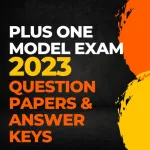The Gramin Dak Sevak (GDS) to Multi-Tasking Staff (MTS) departmental exam is conducted by the Indian Postal Department to provide eligible GDS employees an opportunity to get promoted to MTS positions. The exam assesses the candidates’ knowledge of various subjects relevant to postal services and general awareness.
GDS to MTS Departmental Sample Questions and Answers
Paper 1: General Knowledge and Current Affairs
Question 1: Who is the current President of India?
Answer: Droupadi Murmu
Question 2: What is the capital of Andhra Pradesh?
Answer: Amaravati
Question 3: Who wrote the national anthem of India?
Answer: Rabindranath Tagore
Question 4: Which planet is known as the Red Planet?
Answer: Mars
Question 5: Who is the founder of the Indian National Congress?
Answer: Allan Octavian Hume
Question 6: What is the full form of GDP?
Answer: Gross Domestic Product
Question 7: Which country hosted the 2024 Summer Olympics?
Answer: France
Question 8: Who is known as the “Missile Man of India”?
Answer: Dr. A.P.J. Abdul Kalam
Question 9: What is the currency of Japan?
Answer: Yen
Question 10: Who is the current Chief Minister of Maharashtra?
Answer: Eknath Shinde
Paper 2: Mathematics
Question 1: What is the value of 25 x 25?
Answer: 625
Question 2: Solve for x: 5x + 10 = 35
Answer: x = 5
Question 3: What is the square root of 144?
Answer: 12
Question 4: Convert 50% to a fraction.
Answer: 1/2
Question 5: What is the value of 7! (7 factorial)?
Answer: 5040
Question 6: If the perimeter of a square is 40 cm, what is the length of one side?
Answer: 10 cm
Question 7: What is the area of a triangle with a base of 10 cm and height of 5 cm?
Answer: 25 cm²
Question 8: Simplify: (2x + 3y) – (x – y)
Answer: x + 4y
Question 9: If a train travels 60 km in 1.5 hours, what is its speed in km/h?
Answer: 40 km/h
Question 10: What is the least common multiple (LCM) of 6 and 8?
Answer: 24
Paper 3: English Language
Question 1: Correct the sentence: “She don’t like ice cream.”
Answer: She doesn’t like ice cream.
Question 2: What is the synonym of “Happy”?
Answer: Joyful
Question 3: Fill in the blank: He _____ a book yesterday. (read/reads/reading)
Answer: read
Question 4: What is the antonym of “Hot”?
Answer: Cold
Question 5: Choose the correct word: I have ______ friends. (much/many)
Answer: many
Question 6: Change the voice: “The teacher is teaching the students.”
Answer: The students are being taught by the teacher.
Question 7: Fill in the blank with a suitable preposition: He is good _____ mathematics.
Answer: at
Question 8: What is the plural of “Child”?
Answer: Children
Question 9: Change the tense: “She writes a letter.”
Answer: She wrote a letter. (Past Tense)
Question 10: What is the meaning of the idiom “Break the ice”?
Answer: To initiate a conversation in a social setting.
GDS to MTS Gepartmental Exam Pattern
The GDS to MTS (Multi-Tasking Staff) departmental exam is designed to assess the eligibility of Gramin Dak Sevak (GDS) employees for promotion to MTS positions within the Indian Postal Department. The exam pattern is as follows:
- Mode of Exam: Offline (Pen and Paper)
- Type of Questions: Multiple Choice Questions (MCQs)
- Number of Questions: 100
- Total Marks: 100
- Duration: 2 hours
- Sections: The exam is divided into four sections:
- General Knowledge and Reasoning
- Mathematics
- English Language
- Regional Language (Hindi or local language)
- Negative Marking: There is no negative marking for incorrect answers.
GDS to MTS Gepartmental Exam Syllabus
1. General Knowledge and Reasoning: This section tests the candidate’s awareness of current events, history, geography, and reasoning abilities.
- Current Affairs: Important events of national and international importance, sports, awards, politics, economy, and culture.
- Indian Geography: Physical geography, major rivers, mountains, climate, natural resources, etc.
- History: Major historical events, freedom movement, important dates and personalities in Indian history.
- Basic Economics: Concepts like demand and supply, economic development, government policies, etc.
- Indian Constitution: Fundamental rights, directive principles, structure of the Indian government, etc.
- Reasoning Ability: Questions on logical reasoning, analogies, coding-decoding, puzzles, series, and pattern recognition.
2. Mathematics: This section is designed to evaluate the candidate’s mathematical skills and numerical abilities.
- Number Systems: Whole numbers, fractions, decimals, etc.
- Percentages: Calculations involving percentages, profit and loss, discounts, etc.
- Profit and Loss: Basic profit and loss calculations, percentage profit, etc.
- Simple and Compound Interest: Interest calculations over a period, differences between simple and compound interest, etc.
- Time and Distance: Speed, distance, and time calculations, problems on trains, boats, etc.
- Averages: Calculation of averages, weighted averages, etc.
- Data Interpretation: Interpretation of data in tables, graphs, charts, etc.
3. English Language: This section assesses the candidate’s proficiency in English language, including grammar, comprehension, and vocabulary.
- Comprehension: Reading passages followed by questions on the content, themes, and meaning.
- Grammar: Sentence correction, error spotting, sentence formation, etc.
- Vocabulary: Synonyms, antonyms, word meanings, usage of words in sentences.
- Sentence Formation: Arranging words/phrases to form meaningful sentences, reordering sentences in a passage, etc.
4. Regional Language (Hindi or local language): This section tests the candidate’s proficiency in the regional language, including grammar and vocabulary.
- Basic Grammar: Nouns, pronouns, verbs, adjectives, tenses, sentence formation, etc.
- Vocabulary: Synonyms, antonyms, word meanings, correct usage of words.
- Sentence Formation: Constructing sentences with correct grammar and syntax.
- Translation: Translating simple sentences from English to the regional language and vice versa.
Preparation Strategy
- Focus on Syllabus: Make sure to cover all the topics mentioned in the syllabus. Prioritize areas where you feel less confident.
- Practice Previous Year Papers: Solve past papers to familiarize yourself with the exam pattern and the types of questions asked.
- Time Management: Practice completing sections within the allotted time to improve speed and accuracy.
- Regular Revision: Regularly revise all topics, especially in General Knowledge and Mathematics, to retain information.
- Read Newspapers and Magazines: Stay updated with current events to perform well in the General Knowledge section.
By thoroughly understanding the exam pattern and covering all the topics in the syllabus, you can increase your chances of success in the GDS to MTS departmental exam.
Latest Posts
- Step-by-step guide to download and apply for jee mains admit card 202
- Comprehensive 2025 government holidays and recruitment details for job seekers
- JEE Mains Admit Card 2025: Your Step-by-Step Guide to Downloading the Hall Ticket
- Everything You Need to Know About 2025 Government Holidays Recruitment
- Comprehensive Guide to rrb d group recruitment 2025 – Eligibility, Vacancies, and Application
- Detailed guide to nps trust recruitment 2025 vacancies, eligibility and apply process
- Comprehensive guide to hpcl recruitment 2025 notification, vacancies, and application process
- ignou bed admission 2025 complete recruitment guide with eligibility and process
- Comprehensive Guide to Indian Army Agniveer Recruitment 2025 Notification and Jobs
- Everything You Must Know About CBSE Board Exams 2025 Changes & New Rules




